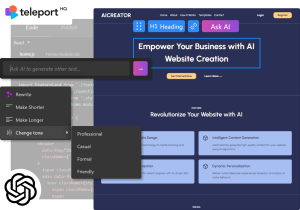Competitive Intelligence for Sustainable Business Growth
Introduction
Achieving long-term success in any industry requires more than short-term wins—it demands sustainable growth strategies. Competitive intelligence plays a vital role in helping companies grow responsibly, strategically, and with staying power. By delivering actionable insights into market dynamics, customer behavior, and competitive threats, competitive intelligence empowers organizations to make smarter decisions that drive lasting value.
Aligning Growth Strategies with Market Realities
Many businesses fail not because they lack ambition, but because they grow in the wrong direction. Competitive intelligence helps align growth plans with real market conditions. By evaluating competitor performance, demand trends, and industry forecasts, companies use competitive intelligence to choose high-potential markets and avoid overextension.
Identifying Emerging Opportunities
One of the most powerful aspects of competitive intelligence is its ability to reveal opportunities that are not yet on every competitor’s radar. Through trend analysis, startup tracking, and gap identification, businesses can enter new niches early. This proactive use of competitive intelligence supports innovation and early-mover advantage, both of which are essential for sustainable growth.
Reducing Strategic Risk
Growth always involves risk—but competitive intelligence minimizes uncertainty by providing a clearer picture of external forces. Whether entering a new region, launching a product, or pursuing a partnership, businesses can assess risks based on real-world competitor data and market signals. With competitive intelligence, growth decisions become calculated and strategic rather than speculative.
Improving Customer Retention and Lifetime Value
Growth isn’t just about acquiring new customers—it’s about keeping existing ones. Competitive intelligence helps businesses understand why customers leave competitors or remain loyal. This allows companies to refine their offerings, improve service, and strengthen retention. Higher retention driven by competitive intelligence leads to improved lifetime value and more stable revenue streams.
Enhancing Product-Market Fit
Sustainable growth depends on delivering products that truly meet market needs. By analyzing competitor positioning, customer sentiment, and adoption rates, competitive intelligence helps teams assess product-market fit with greater precision. This prevents resource waste on features or innovations that don’t resonate with the target audience.
Monitoring Regulatory and Environmental Trends
Growth must also be sustainable from a regulatory and ethical standpoint. Competitive intelligence includes tracking policy changes, compliance updates, and environmental regulations that could impact long-term operations. Companies using competitive intelligence in this way can prepare for new standards and build strategies that are both profitable and responsible.
Strengthening Brand Positioning Over Time
A strong brand contributes significantly to sustainable growth. Competitive intelligence uncovers how competitors are perceived and what branding strategies they employ. By identifying strengths, weaknesses, and white space in brand messaging, companies can position themselves more effectively in the minds of customers using insights drawn directly from competitive intelligence.
Supporting Scalable Business Models
For growth to be sustainable, it must also be scalable. Competitive intelligence helps assess which operational models, pricing structures, and go-to-market strategies are performing well across the industry. Businesses can model their scalability on proven approaches, refined through ongoing competitive intelligence and tailored to their unique strengths.
Empowering Long-Term Strategic Planning
Too many companies focus solely on quarterly goals. Competitive intelligence shifts the perspective toward long-term planning. With continuous monitoring and competitive benchmarking, organizations can build 3–5-year strategies grounded in data and competitive reality. This foresight, powered by competitive intelligence, ensures the business is evolving in the right direction.
Conclusion
Sustainable growth requires more than ambition—it requires intelligence, foresight, and adaptability. By making competitive intelligence a foundational part of strategy, businesses can uncover growth opportunities, minimize risks, and create long-term value. In an ever-changing market, those who prioritize competitive intelligence will be best equipped to grow not just quickly—but wisely and sustainably.












Post Comment